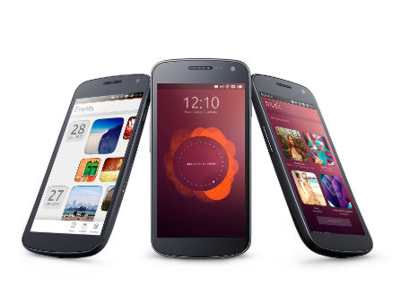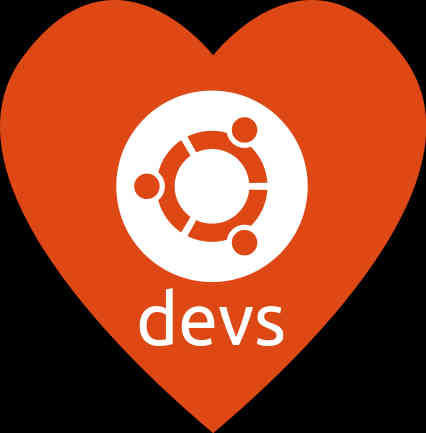| Ubuntu Drops Phone, Unity8 And Convergence |
| Written by Ian Elliot | |||
| Friday, 07 April 2017 | |||
|
Canonical and its Ubuntu are a powerful force in the Linux world and it seemed to be heading in the direction of creating something that might shake up both Apple and Google with its Ubuntu phone and tablet OS. But it is not to be. In a completely unexpected blog post, Canonical founder Mark Shuttleworth delivered some surprising reversals of direction. The one that most news outlets are concentrating on is that from Ubuntu 18.04 the default desktop will be GNOME and work on Canonical's own Unity 8 will be stopped. Unity was introduced to make Ubuntu easier to work with on tablets, but the UI spread to the desktop and phone versions of Ubuntu. An even more ambitious aim was to replace the standard X-Windows server with a new one called Mir - this too has been abandoned. Both Unity and Mir were motivated by the view that a unified Ubuntu running on just about every platform was a good idea. It is indeed a good idea, but as no one seemed to be willing to take the risk on using Ubuntu in a mass market phone or tablet it wasn't a practical proposition.
As consequence the Ubuntu phone and tablet have also been dropped. In short, the six-year project to create a unified Ubuntu on all platforms is at an end.
Is this a good thing? In principle no, because a successful open source alternative phone system would have shaken things up. The key word here is successful. Which phone manufacturer in its right mind would forsake the huge Android ecosystem for something else? This was one of the factors that killed off Firefox OS and now it has done for Ubuntu phone as well. Logically, as phone hardware becomes increasingly powerful, there are fewer and fewer reasons for a special operating system and a standard version of Linux could serve all of the platforms. This was the idea behind Shuttleworth's endeavour to create an all-encompassing platform. From a technical point of view, he was 100% correct but market forces, aren't just about technology. I took the view that, if convergence was the future and we could deliver it as free software, that would be widely appreciated both in the free software community and in the technology industry, where there is substantial frustration with the existing, closed, alternatives available to manufacturers. I was wrong on both counts. Canonical is going to concentrate on its cloud and IoT offerings in the future - along with the traditional desktop, server and VM systems. The UK company is a strange beast in the open source world. It is committed to open source but it isn't a non-profit and has to make profits to continue to exist. The realism that Ubuntu wasn't going to make it as a front line phone OS probably triggered expense saving cuts at the start of the financial year and concentrated on the more profitable IoT and cloud markets. Of course Unity and Mir have no importance to either. Following the announcement there are reports that layoffs are likely in the Unity team and in other non-profitable departments. Canonical filed accounts that reveal a loss of £3.3 million last year and it is reported to be seeking outside investment in the coming year. Clearly cutting project that aren't profitable and aren't likely to be profitable in the future makes sense. In a survey conducted by OMG! Ubuntu, which is still open, only 25% ticked the Negative - e.g. Upset, pessimistic, angry etc. option. Leaving 75% indifferent or positive. Unity and Mir haven't been universally loved by developers and users alike. Indeed having to work with Mir when the rest of the Linux community was switching to Wayland was a big negative. Even so Phoronix is reporting that various people are planning to continue developing Unity. There is already at least one fork on Github unity8.org. The future for Ubuntu, and Canonical in particular, isn't all doom and gloom. Canonical is making money from its OpenStack based cloud offerings and the indications are that it is making IoT a sucess, even though this too is a crowded area. Ubuntu Core complete with its Snap package manager is attracting a lot of attention. However, for each of the platforms it is available on there are established competitors. For example, on Raspberry Pi there is Raspbian another Debian Linux distribution and there are third party alternatives such as Windows 10 IOT Core. On Intel devices there is Yocto Linux and Ref-OS-IoT and there are third party alternatives in addition to Ubuntu Core.
If there is a single reason why IoT developers should choose Ubuntu Core, it isn't being well publicised. There is a very real sense in which Shuttleworth's conviction that convergence is the key was and still is correct. A single operating system that works on everything is a no-brainer but, as Microsoft discovered and I suspect Google is about to find out, it is a tough target. More InformationGrowing Ubuntu for cloud and IoT, rather than phone and convergence Related ArticlesUbuntu Touch SDK Beta - A New Way To Program Linux Ubuntu For Tablets Completes The Set Canonical Wants Help With Ubuntu Phone Apps
To be informed about new articles on I Programmer, sign up for our weekly newsletter, subscribe to the RSS feed and follow us on Twitter, Facebook or Linkedin.
Comments
or email your comment to: comments@i-programmer.info |
|||
| Last Updated ( Friday, 07 April 2017 ) |




